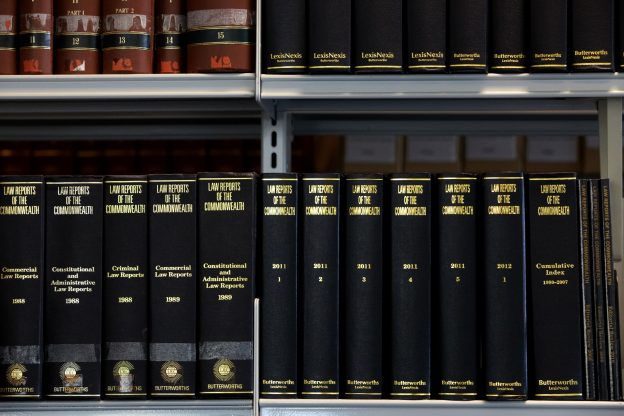A genre analysis of university assessments by lecturers may prevent a forensic analysis of them in the High Court.
The High Court judgement in the case brought by a former student against Oxford University excited much coverage in the press last week. Mr Faiz Siddiqui had claimed that the teaching at Oxford had been so “negligently inadequate” that his History degree classification had had a “deleterious effect on his subsequent career”. The Honourable Mr Justice Foskett, sitting in the High Court of Justice, did not agree.
Many of the headlines were dismissive of Mr Saddiqi (e.g. Daily Mail (online)). However, lecturers need to look beyond the headlines to what the judge took evidence on when preparing his 245 paragraph judgment (Siddiqui versus The Chancellor, Masters and Scholars of the University of Oxford, 2018). By doing so, we’ll avoid a dismissive stance and learn something from the judgement.
In fact, there is a warning in the case about our accountability for the student experience and our assessment practices.
In his written judgement, Mr Justice Foskett considers many aspects of the student experience including course descriptions, syllabi, assessment procedures, library resources, class sizes, marking, and marking criteria. He also considers staffing, workload and the provision of cover within a research-active department. In essence, he considers the whole system both from a legal (forensic) perspective and a pedagogical one.
In going through the judgement, I was struck by the similarities between the judge’s line of reasoning and that in my own line of pedagogical research. I’m an educational linguist and work with contemporary descriptions of language including genre analysis. As I’ll suggest below, knowledge of how language works has a lot to offer those teaching in HE, and indeed those called to defend it.
The judge’s approved judgement starts with a detailed analysis of one of the assessments that Mr Siddiqi faced as part of his finals: a gobbet paper. To prepare the opening paragraphs of the judgement, he had asked the Oxford academics who gave evidence for an explanation of the purpose, stages and reading required to write the genre of the gobbe [paragraph 10]. This is the start of what linguists call a genre analysis. The judgement then goes on to consider the evidence presented by the academics that they, and the university, gave adequate support to Mr Siddiqui in preparing for the assessment, along with their acknowledgement that gobbet papers are “very ‘testing’ and ‘difficult’” [paragraph 24].
By starting with an assessment text (the gobbet paper), the judge follows a process with which I’m familiar in my research. I was introduced to the word gobbet by Mary McKeever when we conducted an analysis of assessment on a history BA course (Wrigglesworth & McKeever, 2010). The term for this type of assessment paper on the course we researched was document commentary. I was reassured that the Oxford academics held a similar view to that outlined in our paper.
Working with history lecturers we had conducted a genre analysis on a set of assessments. As we had analysed examples of student scripts, we were able to devise descriptions of how the assessment worked at the level purpose and stages but also of grammar and vocabulary. The genre descriptions and language material we generated from the research was used in workshops with students, enhancing the support given to them about how historians write and think. We were able to explain the assessments from wider purpose down to sentence level grammar. Although this detail was not required to illuminate Mr Siddiqui’s case, it could be with all groups of students and, indeed, appellants in legal cases.
Using a genre-based approach in the classroom can be immensely empowering for students. This is particularly so for those at risk of not succeeding or from groups with historical disparities in educational outcomes. Educational linguists can thus make a positive contribution to pedagogy and help respond to the negative complaint, “why can’t students write these days?”.
What lessons can we learn from the case?
Mr Justice Foskett is a high court judge. As an undergraduate, he was president of his student union (King’s College, London). His book on The Law and Practice of Compromise, now in its eighth edition, deals in part with the settlement of disputes before they come to court (Foskett, 2015). As a judge is not unsympathetic to Mr Saddiqi, a student who feels he hasn’t made as much of himself as he had hoped [paragraph 243]. Lecturers should take no comfort from this judge nor the case of Siddiqui versus The Chancellor, Masters and Scholars of the University of Oxford, 2018.
My view, as an expert in educational linguistics, is that providing genre explanations of assessments will support all students in successfully meeting their learning (and therefore career) objectives. And such provision may prevent lecturers being called to present forensic explanations of their assessment practices in the High Court.
John Wrigglesworth is Head of International at Sheffield Institute of Education
Foskett, D. (2015). Foskett on Compromise (8th ed.). London, Sweet & Maxwell Ltd. This book was previously known as The Law and Practice of Compromise.
Sidddiqi v. The Chancellor, Masters and Scholars of the University of Oxford (2018). Royal Courts of Justice, HQ14X03469.
Wrigglesworth, J., & McKeever, M. (2010). Writing history: a genre-based, interdisciplinary approach linking disciplines, language and academic skills. Arts and Humanities in Higher Education, 9(1), 107-126.

Leave a Reply